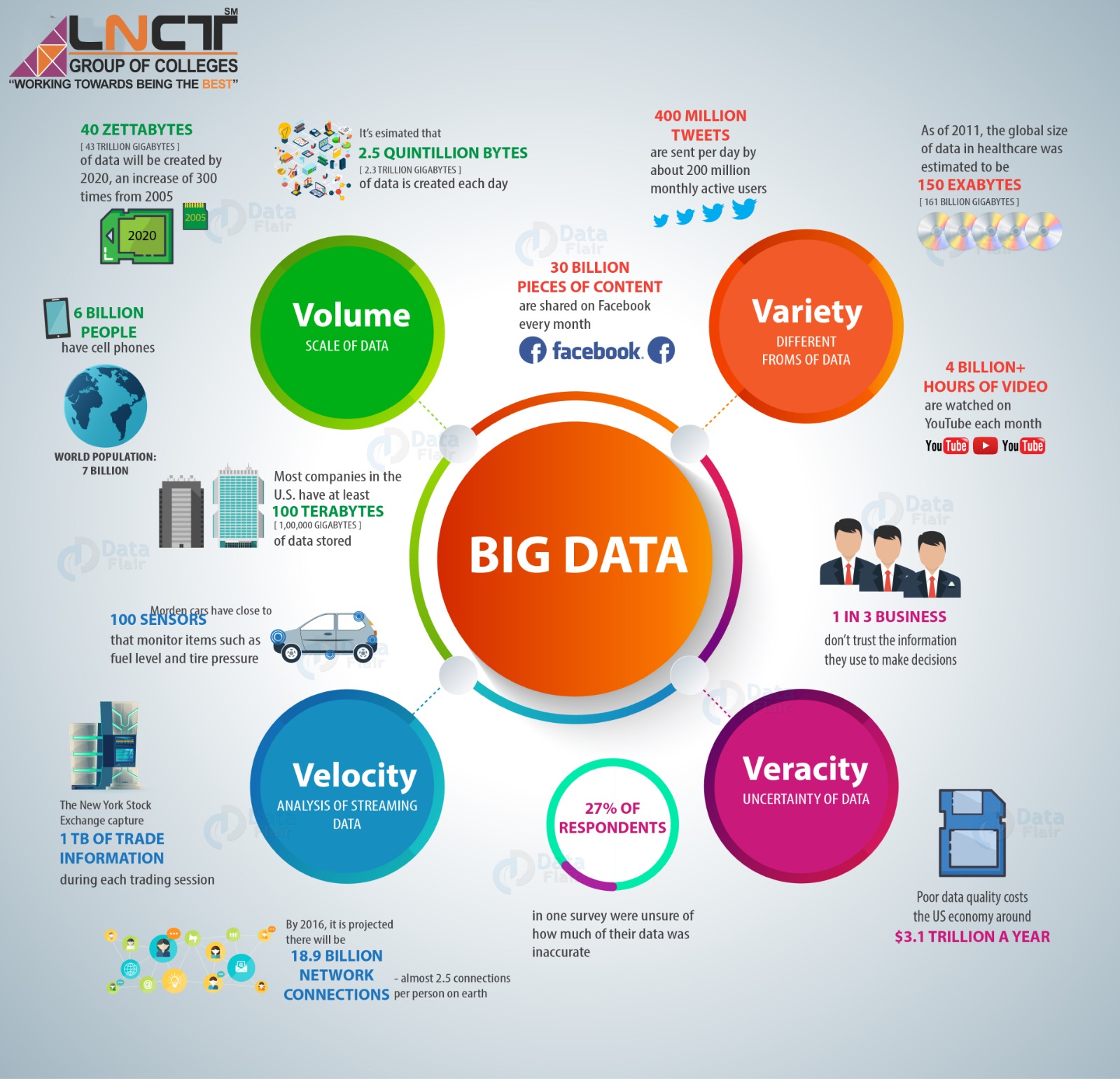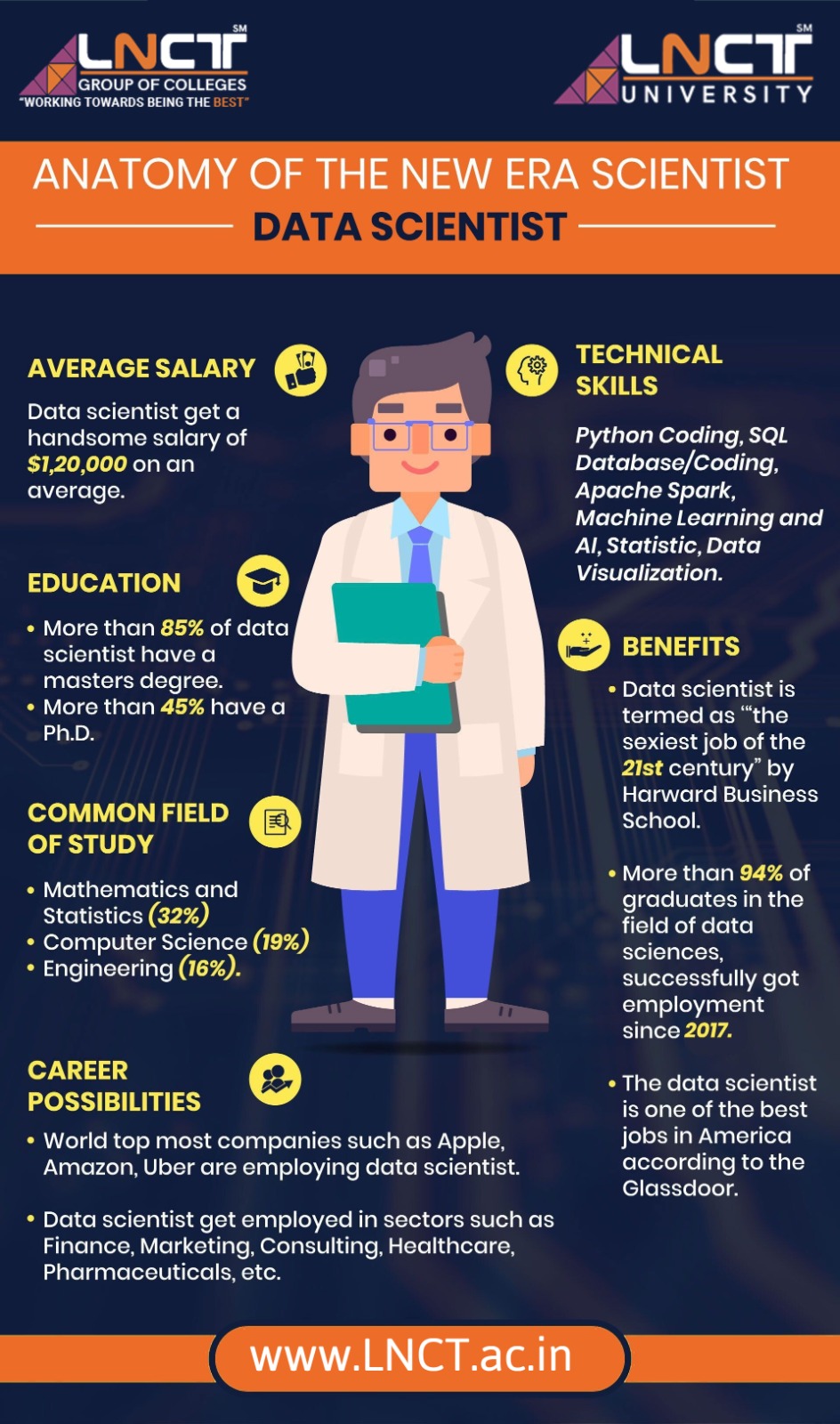How to set up a Career in Big Data Engineering | Step-by-step guide
Big Data Engineering is the future of data science Engineering and Big Data Engineers are in high demand. If you’re interested in a career in this exciting field, this article will give you a step-by-step guide on how to get started. We’ll cover everything from understanding the role of a Big Data Engineer to gaining the skills and experience you need to grab a job. So whether you’re just starting out or you’re looking to advance your career, read on for all the information you need to succeed in Big Data Engineering.
Here are some of the key points covered in the article:
- The role of a Big Data Engineer
- The skills and experience you need to be a Big Data Engineer
- How to get started in a career in Big Data Engineering
- The future of Big Data Engineering
Big Data is the future of data science
Big Data Engineers manage and analyze large volumes of data to extract valuable insights
A Big Data Engineer is a professional who specializes in handling and analyzing large volumes of data. They work with various technologies and tools to collect, process and manage massive datasets to extract valuable insights and support business decision-making. Big Data Engineers are responsible for designing and implementing data infrastructure, developing data pipelines and ensuring data quality and security.
Big Data gained prominence in the early 2000s as organizations faced challenges with data management.
Big data as a concept gained prominence in the early 2000s when organizations started facing challenges in managing and making sense of the enormous amount of data generated. Since then, the field has evolved rapidly, with Big Data Engineers playing a crucial role in handling and leveraging this data.
Big Data Engineers work in various industries, including technology, finance, healthcare and e-commerce.
Big Data Engineers work in various industries such as technology, finance, healthcare, e-commerce and more. They can be employed by large corporations, data-driven companies, consulting firms, or even work as independent consultants.
Becoming a Big Data Engineer offers exciting career prospects in the rapidly evolving field of data analytics
There are several reasons why individuals choose to become Big Data Engineers. Firstly, the demand for professionals with expertise in handling and analyzing big data is consistently growing. Organizations are increasingly relying on data-driven insights to gain a competitive edge, creating a high demand for skilled Big Data Engineers. Additionally, the field offers challenging and intellectually stimulating work, with opportunities to work on cutting-edge technologies and solve complex data problems.
To become a Big Data Engineer, one should focus on gaining expertise in programming, data management and analytics.
To become a Big Data Engineer, one typically needs a strong foundation in programming, data management and analytics. Acquiring knowledge of technologies like Hadoop, Spark, SQL, Python and data warehousing concepts is essential. Pursuing relevant certifications or completing specialized training programs in Big Data and related fields can also be beneficial.
Big Data Engineers specialize in handling large datasets, while Full Stack Developers focus on web application development.
Comparing a Big Data Engineer to a Full Stack Developer, while there may be some overlap in skills, their primary focus differs. A Big Data Engineer specializes in handling and processing large datasets and building data infrastructure, whereas a Full Stack Developer is responsible for developing end-to-end web applications, handling both the front-end and back-end development.
The average salary of Big Data Engineers in India is competitive and varies based on experience and expertise
The average salary of Big Data Engineers in India varies based on experience, location and the organization they work for. However, Big Data Engineers are generally well-compensated due to their specialized skills and high demand in the industry.
Big Data Engineers are in high demand and the field is expected to continue growing over the next 10 years, creating ample job opportunities.
Considering the growing trust on data-driven insights across industries, Big Data Engineers are expected to be in high demand over the next 10 years. As more organizations recognize the value of data and invest in advanced analytics and data-driven strategies, the need for skilled Big Data Engineers will continue to rise.
Job opportunities for Big Data Engineers are diverse and widespread.
They can work in various roles such as Data Engineer, Data Analyst, Data Architect, Big Data Consultant, or even pursue entrepreneurial ventures in data-related fields. The demand for their expertise is expected to remain strong as businesses strive to harness the power of big data for improved decision-making and innovation.

A Complete Step-by-Step Guide to Set Up a Career in Big Data Engineer
Step 1:
- Understand the role of a Big Data Engineer and the industry demand.
- Research and understand the responsibilities and expectations of a Big Data Engineer.
- Gain insights into the growing demand for Big Data Engineers in various industries.
Step 2:
- Acquire a strong foundation in programming languages such as Python or Java.
- Learn the fundamentals of Python or Java programming languages.
- Understand data structures, control flow and object-oriented programming concepts.
Step 3:
- Gain expertise in data processing frameworks like Hadoop, Spark and Apache Kafka.
- Learn how to work with distributed computing frameworks like Hadoop and Spark.
- Understand the concepts of data ingestion, processing and storage using these frameworks.
- Familiarize yourself with Apache Kafka for real-time data streaming.
Step 4:
- Learn SQL and database management concepts.
- Acquire knowledge of SQL (Structured Query Language) for data querying and manipulation.
- Understand database management systems like MySQL, Oracle, or PostgreSQL.
- Learn about data modeling and database design principles.
Step 5:
- Familiarize yourself with distributed computing and cloud platforms like AWS or Azure.
- Gain knowledge of distributed computing concepts and how they apply to Big Data.
- Learn to work with cloud platforms like Amazon Web Services (AWS) or Microsoft Azure for scalable and cost-effective data processing.
Step 6:
- Develop skills in data warehousing and ETL (Extract, Transform, Load) processes.
- Understand the concepts of data warehousing and data integration.
- Learn ETL processes for extracting, transforming and loading data from various sources into a centralized data warehouse.
Step 7:
- Gain hands-on experience by working on real-world Big Data projects or internships.
- Look for opportunities to work on Big Data projects or internships to gain practical experience.
- Apply your knowledge and skills to solve real-world data engineering challenges.
Step 8:
- Stay updated with the latest advancements in Big Data technologies and continue learning and upskilling.
- Follow industry trends and advancements in Big Data technologies.
- Participate in online courses, webinars and conferences to stay updated.
- Continuously learn and upskill yourself to stay competitive in the field of Big Data engineering.

Unlock Your Career Potential: A Step-by-Step Guide to Building Your Future
- A Complete Step-by-Step Guide to Success in NEET/AIIMS
- A Complete Step-by-Step Guide to Successful Journalist/Reporter
- Career in Hotel Management- A Complete 8 Step-by-Step Guide
Expert Advice By Top Big Data Engineer
- Understand the role of a Big Data Engineer and the industry demand. Research and understand the responsibilities and expectations of a Big Data Engineer. Gain insights into the growing demand for Big Data Engineers in various industries.
- Acquire a strong foundation in programming languages such as Python or Java. Learn the fundamentals of Python or Java programming languages. Understand data structures, control flow and object-oriented programming concepts.
- Gain expertise in data processing frameworks like Hadoop, Spark and Apache Kafka. Learn how to work with distributed computing frameworks like Hadoop and Spark. Understand the concepts of data ingestion, processing and storage using these frameworks. Familiarize yourself with Apache Kafka for real-time data streaming.
- Learn SQL and database management concepts. Acquire knowledge of SQL (Structured Query Language) for data querying and manipulation. Understand database management systems like MySQL, Oracle, or PostgreSQL. Learn about data modeling and database design principles.
- Familiarize yourself with distributed computing and cloud platforms like AWS or Azure. Gain knowledge of distributed computing concepts and how they apply to Big Data. Learn to work with cloud platforms like Amazon Web Services (AWS) or Microsoft Azure for scalable and cost-effective data processing.
- Develop skills in data warehousing and ETL (Extract, Transform, Load) processes. Understand the concepts of data warehousing and data integration. Learn ETL processes for extracting, transforming and loading data from various sources into a centralized data warehouse.
- Gain hands-on experience by working on real-world Big Data projects or internships. Look for opportunities to work on Big Data projects or internships to gain practical experience. Apply your knowledge and skills to solve real-world data engineering challenges.
- Stay updated with the latest advancements in Big Data technologies and continue learning and upskilling. Follow industry trends and advancements in Big Data technologies. Participate in online courses, webinars and conferences to stay updated. Continuously learn and upskill yourself to stay competitive in the field of Big Data engineering.
Conclusion
Big Data Engineers are in high demand and the field is expected to continue growing over the next 10 years. If you are interested in a career in Big Data Engineering, I encourage you to follow the steps outlined above. With hard work and dedication, you can become a successful Big Data Engineer and make a significant impact on the field.
Difference Between Big Data and Data Science
Big Data:
It is huge, large, or voluminous data, information, or the relevant statistics acquired by large organizations and ventures. Many software and data storages is created and prepared as it is difficult to compute the big data manually. It is used to discover patterns and trends and make decisions related to human behavior and interaction technology.
Advantages of Big Data:
Able to handle and process large and complex data sets that cannot be easily managed with traditional database systems
Provides a platform for advanced analytics and machine learning applications
Enables organizations to gain insights and make data-driven decisions based on large amounts of data
Offers potential for significant cost savings through efficient data management and analysis
Disadvantages of Big Data:
Requires specialized skills and expertise in data engineering, data management and big data tools and technologies
Can be expensive to implement and maintain due to the need for specialized infrastructure and software
May face privacy and security concerns when handling sensitive data
Can be challenging to integrate with existing systems and processes
Data Science:
Data Science is a field or domain which includes and involves working with a huge amount of data and using it for building predictive, prescriptive and prescriptive analytical models. It’s about digging, capturing, (building the model) analyzing(validating the model) and utilizing the data(deploying the best model). It is an intersection of Data and computing. It is a blend of the field of Computer Science, Business and Statistics together.
Advantages of Data Science:
Provides a framework for extracting insights and knowledge from data through statistical analysis, machine learning and data visualization techniques Offers a wide range of applications in various fields such as finance, healthcare and marketing Helps organizations make informed decisions by extracting meaningful insights from data Offers potential for significant cost savings through efficient data management and analysis
Disadvantages of Data Science:
- Requires specialized skills and expertise in statistical analysis, machine learning and data visualization
- Can be time-consuming and resource-intensive due to the need for data cleaning and preprocessing
- May face ethical concerns when dealing with sensitive data
- Can be challenging to integrate with existing systems and processes
- Similarities between Big Data and Data Science:
- Both fields deal with large amounts of data and require specialized skills and expertise
- Both aim to extract insights and knowledge from data to inform decision-making
- Both have a wide range of applications in various industries
- Both can lead to significant cost savings and operational efficiencies when applied correctly
Q: What do Big Data Engineers do?
A: Big Data Engineers manage and analyze large volumes of data to extract valuable insights and develop data-driven solutions.
Q: When did Big Data gain prominence?
A: Big Data started gaining prominence in the early 2000s as organizations faced challenges with managing and analyzing large datasets.
Q: Where do Big Data Engineers work?
A: Big Data Engineers work in various industries such as technology, finance, healthcare, e-commerce and more, where data analysis and management are crucial.
Q: Why should one become a Big Data Engineer?
A: Becoming a Big Data Engineer offers exciting career prospects in the rapidly growing field of data analytics and enables professionals to work with cutting-edge technologies and solve complex data challenges.
Q: How can one become a Big Data Engineer?
A: To become a Big Data Engineer, one should focus on acquiring skills in programming languages, data processing frameworks, database management and data analytics through relevant education, certifications and practical experience.
Q: What is the difference between a Big Data Engineer and a Full Stack Developer?
A: While Big Data Engineers specialize in managing and analyzing large datasets to extract insights, Full Stack Developers focus on developing complete web applications, including both front-end and back-end development.
Q: What is the average salary of Big Data Engineers in India?
A: The average salary of Big Data Engineers in India varies based on factors like experience, location and organization but is generally competitive and lucrative.
Q: Are Big Data Engineers in demand in the next 10 years?
A: Yes, Big Data Engineers are expected to be in high demand over the next 10 years as organizations continue to generate and leverage large volumes of data, requiring skilled professionals to handle and analyze it effectively.
Q: What are the job opportunities in the field of Big Data Engineering?
A: Job opportunities in Big Data Engineering are abundant, with roles such as Data Engineer, Data Analyst, Big Data Architect, Data Scientist and more, available in various industries seeking to harness the power of data for business insights and decision-making.



